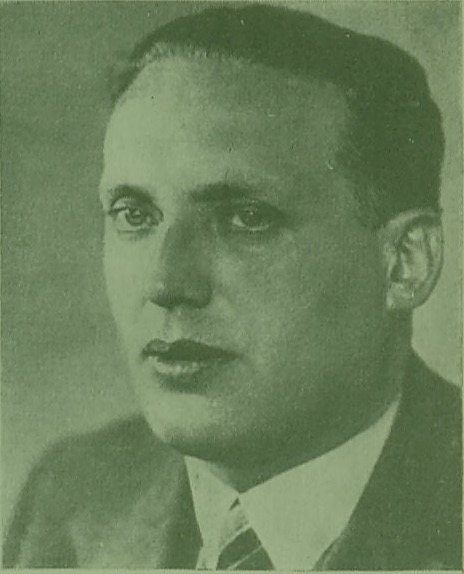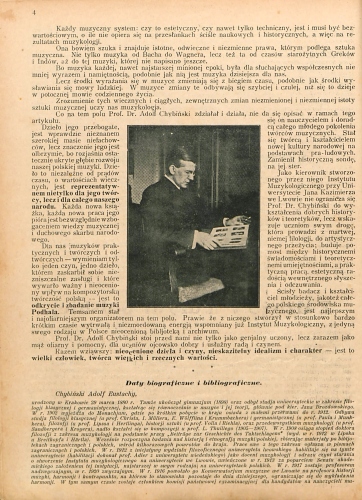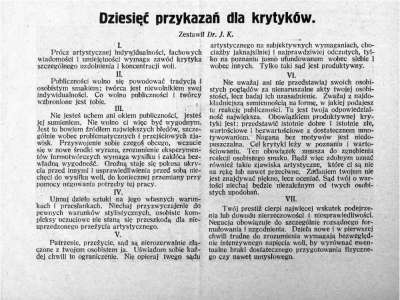Though Muzyk Wojskowy was primarily catering for military band leaders, its contents went significantly beyond that social group’s scope of interest and concerned various problems of music history and theory. Koffler contributed to this periodical throughout its brief history (1926–1929), starting with No. 3 (when he was introduced as a columnist by the editors). Altogether, he printed twenty-five texts in this journal, including regular features in up to fifteen instalments.

Muzyk Wojskowy
Such feature series included: ‘Problems of Music’ (1926–1927), ‘A Survey of Music History’ (1927–1928), ‘Ornamentation’ (1928), and ‘Compendium of Music History’ (1928–1929). In the cycle ‘On Orchestral Colours’, Koffler discussed the general tenets of his 1923 doctoral dissertation on the symphonic works of Felix Mendelssohn-Bartholdy. Apart from these features, Koffler also contributed texts about the oeuvres of selected composers, including Franz Schubert, Felix Mendelssohn-Bartholdy (based again on Koffler’s doctorate), Arnold Schönberg, Franz Schreker, Igor Stravinsky, and two Poles – Mieczysław Sołtys and Karol Szymanowski (he also wrote an account of a concert of the latter artist’s works, held in Lwów). In one case Koffler discussed his own composition (Sielanka [Idyll], Op. 4).
His articles also tackled such questions as music criticism, music school system, and absolute pitch, as well as (indirectly) musical education. There are two commentaries on Adolf Chybiński’s achievements and a review of Seweryn Barbag’s book on Chopin’s songs.
Muzyk Wojskowy also printed two texts about Koffler, namely his earliest known biographical note and Adam Sołtys’s favourable review of Koffler’s Forty Polish Folksongs (both in 1927). These publications show that he enjoyed recognition as both a musician and an author.

